Ukraine invasion: Switzerland joining the banking boycott of Russia is dividing the country
Putin’s Ukraine invasion is reshaping a Europe that had forgotten the policies needed to deal with conflict.
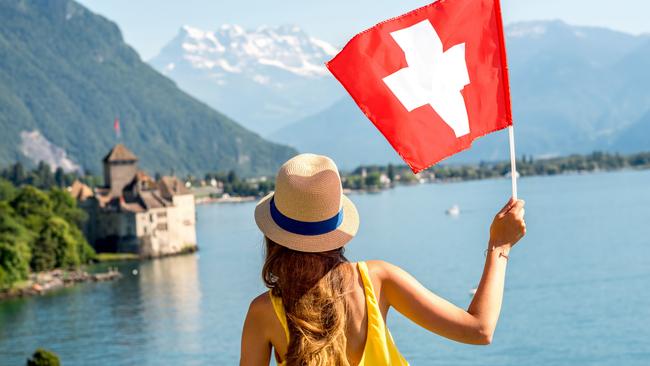
For two centuries the Swiss have avoided the black shafts of blood and death that come with war. It is a handsome country of striking, often ancient architecture framed by abrupt snowy peaks, long glaciers and deep, clear-water lakes.
Perhaps the rest of Europe might look like Switzerland does today. But it doesn’t. Europe’s wars – particularly the bombs dropped between 1939 and 1945 – have taken a dreadful toll, scars we can witness to this day in the reshaped London and Liverpool, Bremen and Berlin.
Few bombs have fallen on Switzerland, a nation famed – some would say notorious – for its 207-year-old policy of neutrality. But is its neutrality these days an indulgence?
Lord Byron, after spending the summer of 1816 in Geneva (with Mary Shelley who wrote the Frankenstein novel on that trip), dismissed Switzerland as “a curst, selfish, swinish country of brutes, placed in the most romantic region of the world”. Others might see that as harsh.
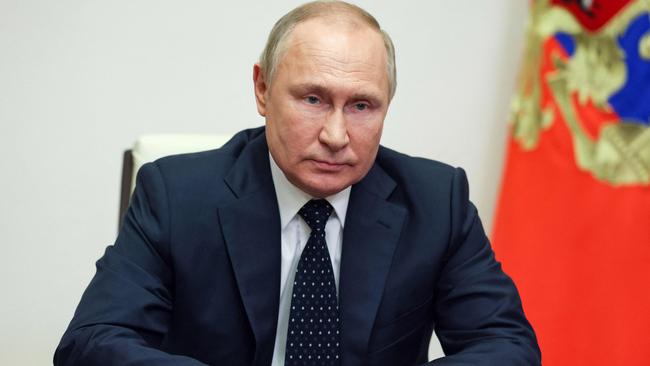
And in an increasingly polarised and dangerous world such a policy is proving difficult to maintain. Even the Swiss, 95 per cent of whom wish to preserve its neutrality, recently, in an unprecedented change, broke their age-old rule and joined the West’s banking boycott of Russia following Vladimir Putin’s cruel, irrational and bloody invasion of Ukraine. The Swiss have so far reportedly frozen almost $US16bn in Russian assets locked in their secretive bank vaults ($2bn of which was reported to be the personal wealth of the Russian president). The Swiss opposition quickly labelled the move an act of war. But then neutral, and panicked, Sweden and Finland began urgently negotiating to join NATO.
Michael Shoebridge, Director, Defence, Strategy and National Security at the Australian Strategic Policy Institute, said Switzerland would have been “caught up in secondary sanctions” had it not joined the banking boycott.
“Putin’s war in Ukraine has been an enormous identity shock to Europeans. The new German Chancellor, Olaf Scholz, three days into the war undid decades of rock solid German policy. The Europeans have thought of themselves as postwar Europe since 1945. They can’t anymore.”
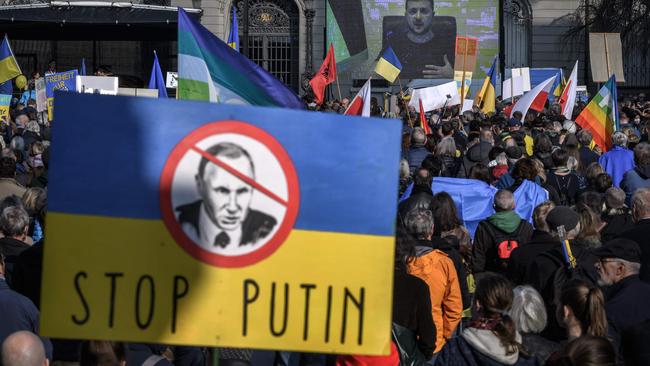
But Switzerland did not have the same threat as Sweden and Finland. There is less imperative for the Swiss. “What is the abiding threat?” Shoebridge asked. Nonetheless, their joining the banking boycott “is big news”. “But it’s not like there’s a uniform change in Europe. It’s quite discordant. Switzerland won’t be feeling isolated.”
So have the Swiss, with their enshrined neutrality so protected that they did not join even the United Nations until 2002 – and then only after a perilously close referendum – finally taken sides. Sort of.
Switzerland is geographically blessed to be locked in by Italy, Germany, Austria and France – EU and/or NATO heavyweights (pedants might add Liechtenstein, a trivial principality whose army of 80 soldiers was disbanded more than a century ago, with a population today still less than Lismore and a Swiss border far shorter than a marathon run).
Taking its traditional each-way bet, Switzerland will never join NATO, however it is part of NATO’s Partnership for Peace program. But so too is Russia. Vowing not to repeat the mistakes of Europe’s past, Russia joined in 1994, at which time United States president Bill Clinton declared: “Today Russia took an important step to help shape a safer and more peaceful post-Cold War world.”
If only.
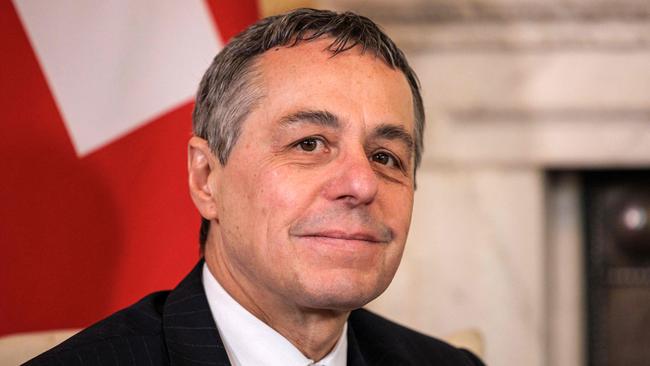
To a degree you can understand Switzerland’s reluctance to throw in its lot with other Europeans – they have been at war with each other since long before Jesus preached of the need for peace on earth. Archaeological evidence unearthed in 1983 indicates that five millennia before Christ’s birth, Europeans were killing each other with organised enthusiasm. That was the year they discovered what is known as the Talheim Death Pit in southern Germany. There were 34 bodies there, most killed with arrows or blows from an adze. Experts believe it to be the first evidence of coordinated violence. Brutality to a schedule – war, if you like. There would be plenty more to come on the Continent, it goes without saying, until, ultimately, Germany set out in the 1930s to rule Europe while eradicating an entire race. Putin is behaving similarly aggressively today. And polls show Russians support their president notwithstanding his war crimes and attacks on hospitals and children’s centres in Ukraine.
It’s a European thing, but for hundreds of years the Swiss have nobly, or cynically and strategically, endeavoured to sit apart from this mayhem.
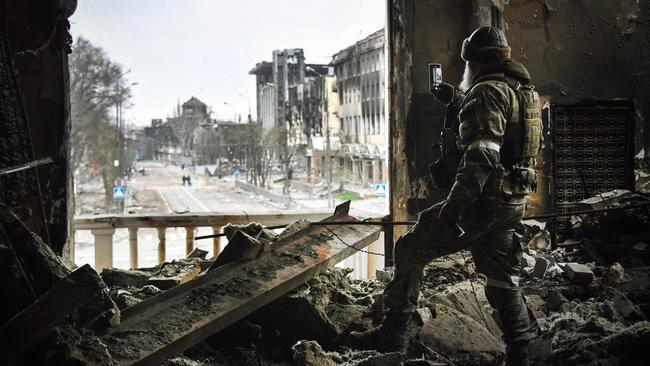
Today, their attitude is called armed neutrality. It may be amusing to think that the Swiss, if ever attacked, might come at you with cork screws and tweezers, but the country maintains a well-armed, well trained and large army – all males are conscripted at 20 – with the ability to tap more than 1.5m men ready for active service. It has a small, but modern and well-equipped air force.
Ultimately, the Swiss position is perhaps unsustainable. This was almost proved to them in 1941, but for various reasons Hitler’s detailed plans to invade and occupy Switzerland and then divide it up with Benito Mussolini’s Italy, were waylaid, mostly by the German attack on Russia. About 60 per cent of Swiss are German speakers, but an annoyed Hitler called their nation a pimple on the face of Europe and a “a misbegotten branch of our volk”.
Then, as now, Europe was threatened by an irrational leader. Hitler did not share the norms of humanity in the manner that Putin probably does not. Does the Russian leader wish for peace and the advancement of his people? Probably not. He may even be prepared to engage nuclear weapons.
In the 1940s, Switzerland’s future was secured by the Allied forces, including Australian troops, thousands of whom are buried on the continent in silent witness to a commitment to liberal democracy on which the Swiss appear pretty keen, but not at any price. Indeed, Allied aircrew in damaged planes that made emergency landings on Swiss territory during WWII were interned and some sent to prison camps. Meanwhile, Swiss banks held wealth looted by the Nazis across Europe – much of it stolen from Jews – but then refused many Jewish refugees during the Holocaust. In December 1999 – which was a bit late, really – the country apologised for this policy that was a death sentence for thousands. This was the disturbing face of “neutrality” when the future of the free world was at stake – the Swiss happy to enrich themselves exploiting both perpetrators and powerless. An example of this is that the publishing income from Hitler’s poisonous anti-Semitic manifesto, Mein Kampf, were reportedly deposited at the Bern branch of the Union Bank of Switzerland. As late as 1997 that bank was still shredding its embarrassing Holocaust-era documents.
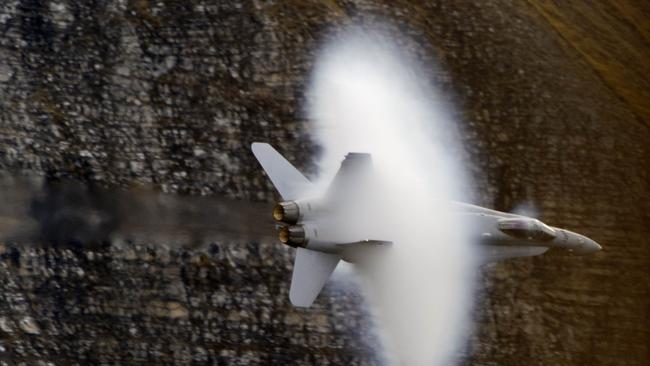
For the Swiss, foreign policy is a balancing act. It seeks a free trade arrangement with Washington, and at the same time seeks an improved trade deal with Beijing. While not a member, it enjoys many of the benefits of the EU. But it is can also be selfishly defensive. It refused to sign the European statement demanding Saudi Arabia investigate the murder of dissident journalist Jamal Khashoggi in Istanbul. Switzerland only partly joined the international boycotts that eventually ended apartheid in South Africa.
Switzerland is now seeking one of the 10 non-permanent seats on the UN Security Council – a two-year term that will start next year. The 193 member states will vote on this in days. Predictably, the idea is dividing the Swiss not all of whom agree with their president, Ignazio Cassis, who told the National Council, the lower house of the Swiss parliament: “Our candidacy is in the interest of Switzerland as much as in that of the world.” Swiss People’s Party vice-president Roger Koppel was quick to disagree: “Entry to the Security Council would torpedo Swiss neutrality. It is an uncalculated risk for our country.”
And authoritative commentator Paul Widmer, a former Swiss ambassador to Croatia, Jordan, the Vatican and the Council of Europe, who lectures on international affairs, is also opposed, believing both Switzerland and the Security Council stand to lose from the move. “If Switzerland is faithful to its traditional neutral policy, it probably would have to abstain often from casting a vote in the Security Council,” he said last month. “This would not be in the interest of this body, which should be strengthened and not weakened.” The parliament voted 125-56 to proceed.
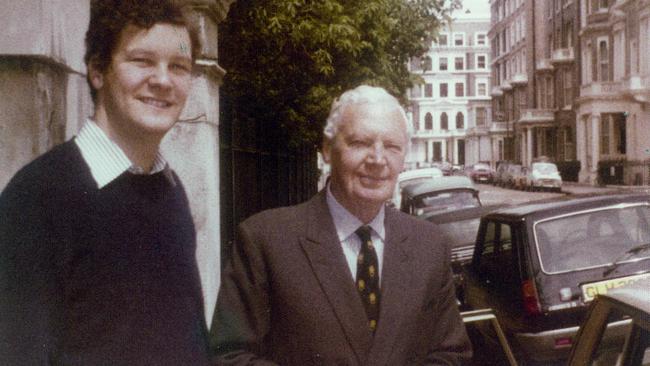
Alexander Downer is Australia’s longest-serving Minister for Foreign Affairs, filling that role from 1996 to 2007. Later he spent four years as our High Commissioner to the London. He described Switzerland’s decision to join the banking boycott of Russia as “a big step”.
“(Neutrality) is very much a deep tradition for them,” he said. “It is incredible how neutral they managed to remain throughout the war.”
He believes that Switzerland’s geography makes it an easy country to defend and that this relative safety informs their concept of neutrality and makes it more sustainable “which is unfortunate”.
“They have made gradual changes. They joined the UN, they’ve allowed international access to their banking system, providing greater transparency – the privacy of the Swiss banking system was seen as sacrosanct. It was also seen as important to the economy. (Neutrality) is so deeply etched into the Zeitgeist of the country that it’s certainly sustainable. “
The rest of the world had long accepted this. “I think they are likely to maintain this position. I don’t think they come under a lot of international pressure.”
Younger Swiss are keener of the EU than their elders, but joining “would be a huge step for Switzerland”. But he believes “they should start the process of pulling their weight, because protecting liberal democracy is expensive and painful”.
Downer joked that his father Alick, who served in WWII, was a prisoner of war in Malaya, and later served as a minister in the Menzies government and was himself a High Commission to London, would “scowl” about Swiss neutrality when he visited the country. “You’d be in a hotel in Geneva and he’d be grumbling about the Swiss … ‘selfish people’ is what he thought.”




To join the conversation, please log in. Don't have an account? Register
Join the conversation, you are commenting as Logout